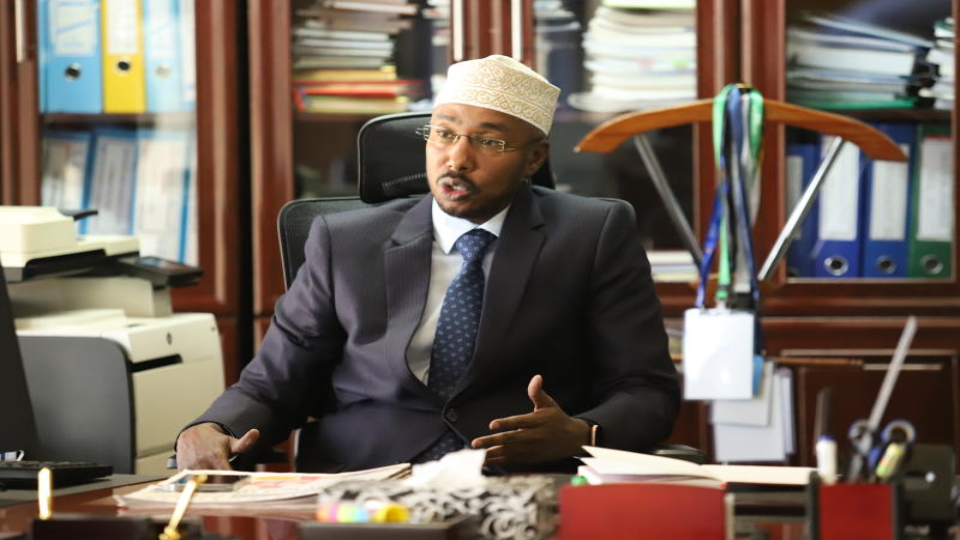IEBC Proposes Shared Broadcast Signal to Enhance Trust in 2027 Kenyan Elections
The Independent Electoral and Boundaries Commission (IEBC) has unveiled a proposal to implement a shared broadcast signal for transmitting election results during the 2027 General Election in Kenya. This initiative aims to address public distrust and reduce confusion caused by discrepancies in media tallies, a persistent issue in past elections. Announced during a consultative roundtable with Kenyan media organizations on August 6, 2025, the proposal reflects the IEBC's commitment to fostering transparency and credibility in the electoral process.
The IEBC's plan stems from challenges observed during the 2022 General Election, where multiple media houses independently tallied presidential results, leading to temporary discrepancies that sparked public anxiety. While media outlets rely on the IEBC's public portal, which hosts images of Form 34A (polling station results) and Form 34B (constituency-level collated results), they employ teams to manually download and input this data into their own systems. This process often results in slight variations in reported tallies, as different outlets update their counts at different paces. These inconsistencies, though eventually resolved as tallies converged, have historically placed the IEBC under scrutiny, with questions raised about the legitimacy of official results.
IEBC Chief Executive Officer Marjan Hussein Marjan emphasized that a shared broadcast signal would ensure all broadcasters receive identical content simultaneously, eliminating the risk of competing tallies. By providing a unified feed directly from the IEBC, the commission seeks to standardize the dissemination of results, reducing the potential for confusion and mistrust among the public. Marjan noted that independent media tallies, while valuable for transparency, can inadvertently fuel uncertainty and even contribute to election-related tensions if not carefully managed.
During the roundtable, Marjan urged media houses to collaborate with the IEBC to develop a framework for implementing the shared signal. He acknowledged the media's critical role in promoting transparency but stressed the need for a coordinated approach to avoid discrepancies that could undermine public confidence. The IEBC invited media organizations to propose practical solutions for integrating the shared signal into their workflows, signaling an openness to dialogue and partnership. This collaborative approach aims to balance the media's independence with the need for consistent and accurate election reporting.
The proposal comes at a time when the IEBC is grappling with broader challenges in rebuilding public trust. The commission has faced criticism over delays in its reconstitution, resource constraints, and concerns about political interference. The shared broadcast signal is part of a broader strategy to address these issues by leveraging technology to enhance electoral integrity.
The 2022 General Election highlighted the complexities of election reporting in Kenya. Media houses, lacking their own systems for collecting results directly from polling stations, depend heavily on the IEBC's portal. However, the manual process of downloading and tallying data introduces delays and inconsistencies, particularly in the early stages of result announcements. These temporary discrepancies, while not indicative of fraud, have historically fueled public skepticism, especially in a country with a history of disputed elections and election-related violence.
The IEBC's proposal also aligns with ongoing efforts to strengthen the legal and technological framework for the 2027 elections. The commission is pushing for legislative reforms to address gaps in the Elections Act, Political Parties Act, and other regulations, with a particular focus on enhancing the role of technology in elections. Additionally, the IEBC is working to meet constitutional obligations, such as the long-overdue boundary delimitation exercise, which has raised concerns about the legality of the 2027 polls if not completed.
The shared broadcast signal proposal has sparked mixed reactions. Some media stakeholders have praised the initiative as a step toward greater transparency, noting that a unified feed could reduce public confusion and reinforce trust in the electoral process. Others, however, have expressed concerns about potential limitations on media independence, arguing that a single feed could restrict their ability to analyze and present results in their own formats. The IEBC has yet to provide detailed technical specifications for the shared signal, leaving some questions unanswered about its implementation and impact.
Public sentiment, as reflected in recent discussions, underscores the urgency of restoring confidence in Kenya's electoral system. Surveys have highlighted persistent concerns about corruption, political interference, and the IEBC's capacity to deliver credible elections. The shared broadcast signal is seen as a practical measure to address one aspect of this trust deficit, but its success will depend on effective collaboration with media houses and clear communication with the public.
As Kenya prepares for the 2027 General Election, scheduled for August 10, the IEBC faces a tight timeline to implement its proposed reforms. The shared broadcast signal represents a bold step toward modernizing election reporting, but it will require significant coordination and investment to execute effectively. The commission's call for media input suggests a willingness to adapt the proposal based on stakeholder feedback, which could shape its final form.
The IEBC's broader efforts to rebuild trust include plans to register approximately 6.3 million new voters, conduct 23 pending by-elections, and address legal and logistical challenges. With the memory of past electoral disputes looming large, the commission's ability to deliver a transparent and credible election will be critical to Kenya's democratic stability. The shared broadcast signal, if successfully implemented, could play a pivotal role in ensuring that every citizen's voice is heard and counted accurately in 2027.


